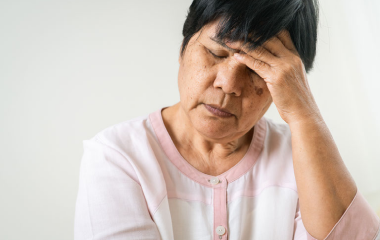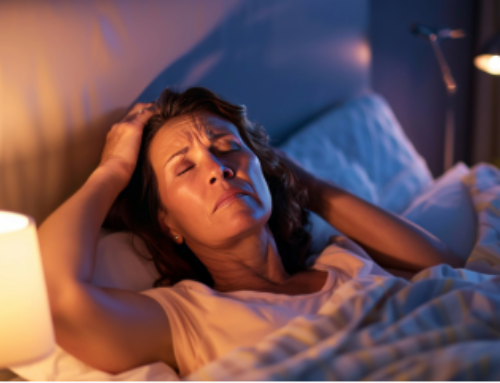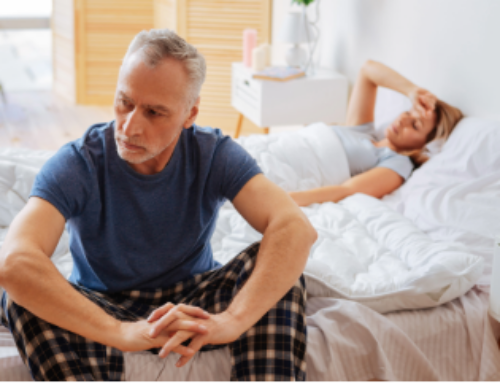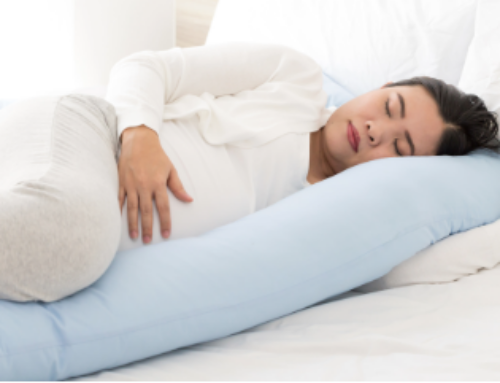Fighting breast cancer can affect multiple aspects of a woman’s health. The physical battle is obvious. Yet the struggle also takes a toll on the mind and emotions. Anxiety, fatigue and depression are common both during and after treatment for breast cancer.
Insomnia is also a frequent complaint.
“The relationship between sleep, fatigue, mood and cancer is a very complex one,” said Sonia Ancoli-Israel, PhD. She is a professor of psychiatry at the University of California, San Diego.
For example, anxiety about breast cancer can make it harder to sleep well. Poor sleep makes fatigue worse. Fatigue can increase the risk of depression. Women with depression are more likely to have insomnia. It’s an ongoing cycle that can have a severe impact on a woman’s quality of life.
The American Academy of Sleep Medicine reports that insomnia may involve a variety of sleep complaints. You may be unable to fall asleep or stay asleep. You may wake up too early and be unable to go back to sleep. The quality of your sleep also may be unrefreshing.
Treating breast cancer may add to the problems with sleep and fatigue. The National Cancer Institute reports that surgery is the most common treatment for breast cancer. Other treatment options include radiation therapy, chemotherapy and hormone therapy.
“Research shows that many women with breast cancer already have poor sleep and fatigue even before the start of chemotherapy, although chemotherapy does make all the symptoms worse,” said Ancoli-Israel.
Menopause is another factor. It makes the problem of insomnia and fatigue even more complex for women with breast cancer.
Menopause
The NCI reports that breast cancer is uncommon before menopause. Most cases of breast cancer occur in women over the age of 60. The NCI estimates that in 2008 there will be more than 182,000 new cases of breast cancer in U.S. women. The disease is expected to cause more than 40,000 deaths among women in the U.S. this year.
According to the AASM, insomnia related to menopause is common. The hormonal and physical changes that occur during and after menopause can affect a woman’s sleep. Hot flashes and other symptoms of menopause can make it hard to sleep well.
Obstructive sleep apnea (OSA) also is much more common in women after menopause. In some women with breast cancer, there may be a link between their daytime fatigue and undetected OSA. An ongoing study by Ancoli-Israel shows that there may be a higher rate of OSA in women with breast cancer.
Other sleep-related problems also are more common as women age. These include fibromyalgia, restless legs and leg cramps. Each of these problems can make it harder for women to sleep well.
Better Sleep
Ancoli-Israel began studying sleep and fatigue in breast cancer nearly 10 years ago. She says that reducing these problems is an important part of fighting the disease.
“Women with breast cancer have enough to worry about without also having to worry about sleep and fatigue,” she said. “Our job is to continue finding ways to improve sleep, decrease fatigue and thus try to improve the quality of life of these courageous women.”
One answer may be cognitive behavioral therapy. Studies show that it can help both women with breast cancer and breast-cancer survivors. It helps you change actions and thoughts that hurt your ability to sleep well. It also helps you develop habits that promote a healthy sleep pattern.
Cognitive behavioral therapy combines a variety of treatment methods. The specific methods used will depend on the nature of your sleep problem. For example, relaxation training may help you if stress and anxiety keep you awake.
Ancoli-Israel also is studying the use of bright light therapy to help women with breast cancer. Women used a bright-light source for 30 minutes each morning during chemotherapy. Early results suggest that it may help improve sleep quality. It also may prevent an increase in fatigue and limit daytime napping.
Sleep Tips
Ancoli-Israel says it is important for women with breast cancer to practice good sleep hygiene. There are also helpful sleep tips for women. In particular she recommends that women with breast cancer:
- Go to bed and get up at the same times each day
- Exercise regularly no matter how fatigued they feel
- Nap only in the afternoon and for no more than 30 minutes
- Avoid caffeine and alcohol in the afternoon and evening
- Make time during the day to focus on sources of anxiety





